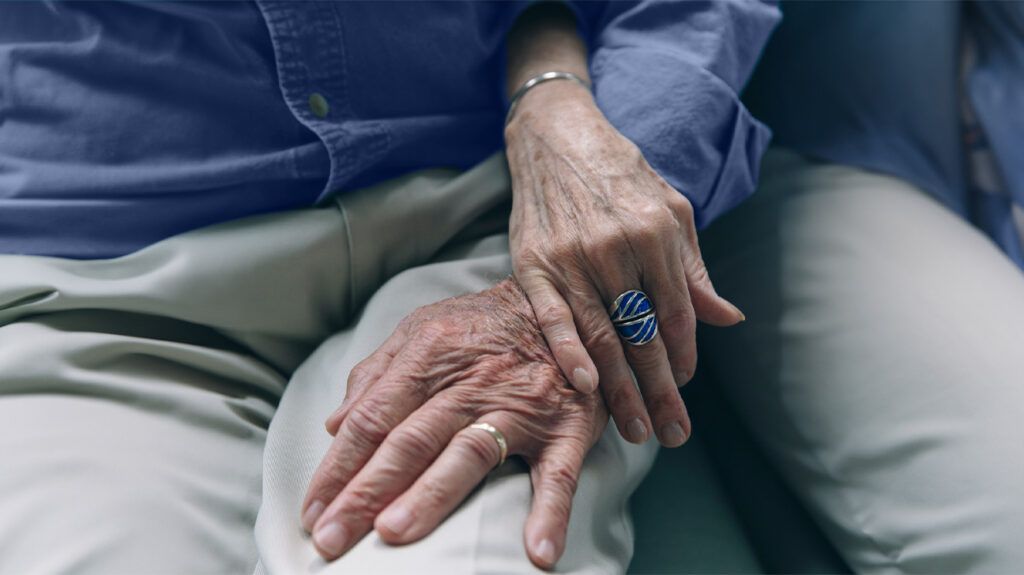Pituitary tumor surgery may affect a person’s emotional and mental well-being, as well as those around them. After surgery, people may experience health fears, personality changes, or mental health issues.
Finding support groups and talking with healthcare professionals may help people cope with changes after pituitary surgery.
This article looks at life after surgery, tips for coping, and support.

The effects of pituitary tumor surgery may have a significant impact on a person’s emotional well-being. People may have fatigue, fears over their future health, and changes in personality.
A partner or caregiver
Ways a partner or caregiver can help support a person after pituitary surgery may include:
- remembering it is the tumor or treatments causing changes
- creating a supportive environment, such as minimizing distractions
- prioritizing self-care and seeking support
According to a
- fatigue
- depression
- anxiety
- sleep disturbances
- daytime sleepiness
Other changes, such as infertility or impaired vision, may also have an emotional impact on people.
Over time, emotional well-being may improve. According to a 2019 study of 20 people, quality of life improved rapidly in the month following surgery, including fatigue and enjoyment of life.
Disturbed sleep continued for longer, but research suggests this may significantly improve within 6 to 12 months postsurgery.
If people are experiencing emotional changes, they may feel apathetic or less interested in activities they usually enjoy.
Tips for managing emotional changes
- staying physically active
- getting outside
- practicing gratitude
- focusing on self-care
- connecting with a support network
- talking with a healthcare professional
A pituitary tumor may cause personality changes, such as:
Some people may be aware of changes, such as reduced patience, while others may not.
Personality changes
In some cases, the changes may be permanent, particularly if there is physical damage to the brain. If a tumor continues growing, it may cause further changes.
In other cases, changes may improve with recovery, or medications and psychological support may help manage changes.
Tips for coping with personality changes include:
- talking with others who have had similar experiences
- talking with a counselor or mental health professional
- paying attention to other people’s reactions to gauge inappropriate behavior
- asking a doctor about brain training to help improve functioning in some areas of the brain
According to the
People may find it helpful to talk with other survivors of pituitary tumors, as they will have shared experiences and understand what people are going through. Many people have gone on to live full lives after having pituitary tumor surgery.
A
If people are having difficulty managing their mental health, it is important to seek support from a healthcare professional or organization.
Caring for a person after pituitary tumor surgery may be challenging and affect a caregiver’s relationship with that person. It can also affect their own mental and emotional well-being.
The Pituitary Foundation offers the following support and guidance to caregivers:
- It can be common to feel frustrated, anxious, or angry, and none of these feelings make a person disloyal to the other person.
- Caregivers may find it difficult to seek support, as they feel that all the focus needs to be on the other person, but it is important to talk with someone about how they are feeling and get support.
- In taking care of themselves, caregivers will be better able to take care of the other person.
- Prioritize any personal health appointments, and ask if there is additional support for carers.
- Letting a healthcare professional know that someone is a carer can make a doctor more aware of issues they may be facing or how the role may affect their health.
People can seek support by reaching out to a healthcare professional. Many organizations offer support to caregivers, such as:
- Pituitary Network Association: offers a support group for spouses and families
- Barrow Neurological Institute: provides a support group for caregivers of those affected by pituitary tumors
- Cancer Care: offers a brain tumor caregiver support group
The following may be helpful for people after pituitary tumor surgery:
Some symptoms of pituitary tumor surgery may continue after surgery, although these may improve over time.
People may find that surgery affects their emotional or mental well-being. Talking with others with shared experiences and seeking help from healthcare professionals may help.
This section answers some frequently asked questions about personality changes after pituitary surgery.
What are the long-term effects of pituitary tumor surgery?
Some possible long-term effects or complications of pituitary tumor surgery
- diabetes insipidus
- brain damage
- stroke
- vision problems
- meningitis
- lack of pituitary hormones
What should I watch after pituitary tumor surgery?
After surgery, people will need to watch for
- bleeding
- infection
- anesthesia reactions, such as nausea, vomiting, or chills
- excessive thirst and frequent urination, which can indicate diabetes insipidus
How long does it take to recover from pituitary gland surgery?
People may experience sinus headache and congestion for
Recovery time can vary for each person, but it may take between
Pituitary surgery may affect a person emotionally and mentally, as well as those around them.
Changes to personality and mental health may be temporary and may improve with recovery. Other changes may be longer lasting, but treatments can help manage them.
